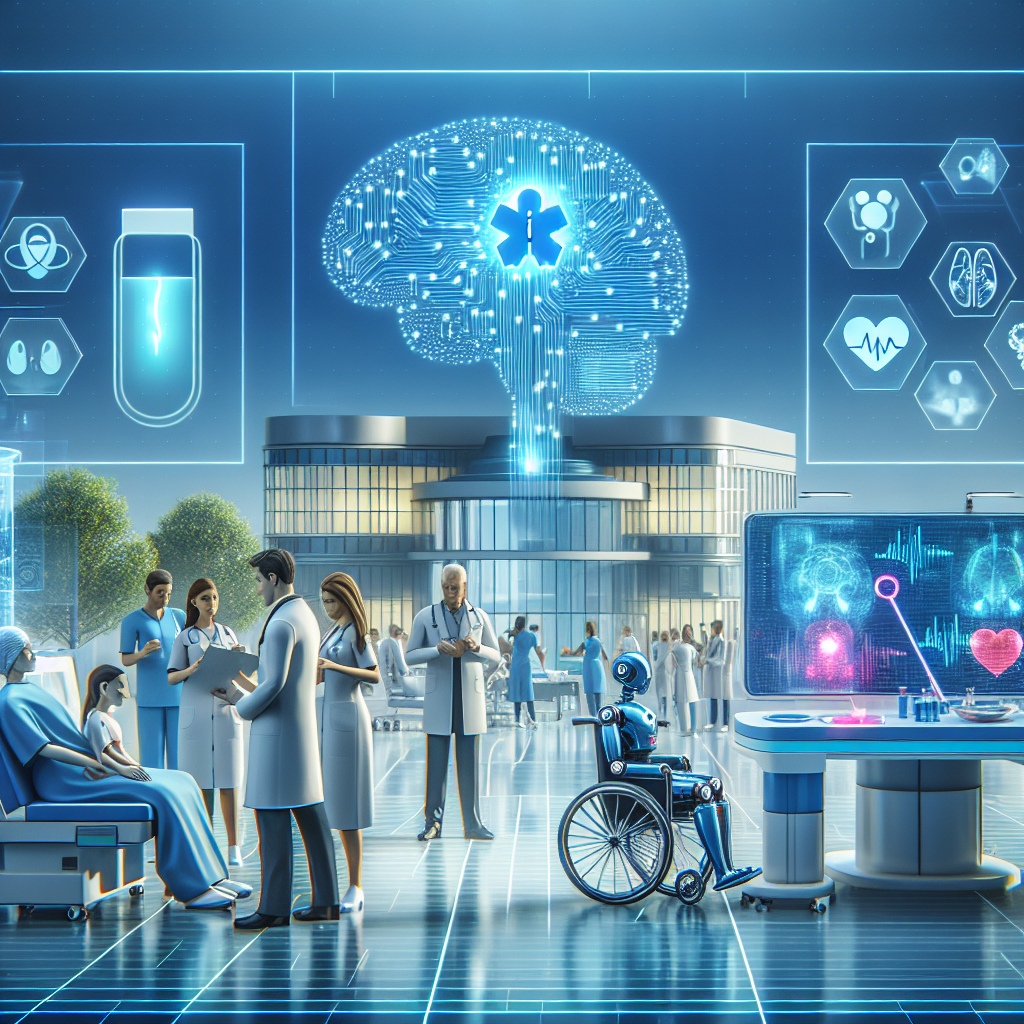The Future of AI-Driven Solutions in Healthcare Diagnosis and Treatment
Artificial intelligence (AI) has been making significant strides in various industries, and healthcare is no exception. AI-driven solutions have the potential to revolutionize how healthcare is delivered, particularly in the areas of diagnosis and treatment. From medical imaging to personalized medicine, AI is poised to transform the way healthcare providers diagnose and treat patients in the future.
AI in Healthcare Diagnosis
One of the most promising applications of AI in healthcare is in the field of diagnosis. AI algorithms can analyze vast amounts of medical data, including patient records, laboratory test results, and imaging studies, to help healthcare providers make more accurate and timely diagnoses. For example, AI-powered diagnostic tools have been developed to detect various medical conditions, such as cancer, heart disease, and neurological disorders, with high levels of accuracy.
AI can also help healthcare providers identify patterns and trends in patient data that may not be immediately apparent to the human eye. By analyzing large datasets, AI algorithms can uncover correlations and relationships that can inform diagnosis and treatment decisions. This can lead to more personalized and effective care for patients.
AI in Healthcare Treatment
In addition to diagnosis, AI-driven solutions are also being used to improve the treatment of medical conditions. AI algorithms can analyze patient data to predict how individuals will respond to different treatments, helping healthcare providers tailor treatment plans to each patient’s unique needs. This personalized approach to treatment can lead to better outcomes and reduced healthcare costs.
AI is also being used to develop new treatments and therapies for various medical conditions. For example, AI algorithms can analyze genetic data to identify potential drug targets for cancer treatment or predict how viruses will mutate to develop new vaccines. By harnessing the power of AI, researchers can accelerate the discovery and development of new treatments that may not have been possible using traditional methods.
Challenges and Opportunities
While the potential of AI in healthcare is vast, there are also challenges that need to be addressed. One of the main concerns is the need to ensure the accuracy and reliability of AI algorithms. Healthcare providers must be able to trust the recommendations and insights provided by AI systems, which requires rigorous testing and validation of these algorithms.
Another challenge is the need to protect patient privacy and data security. AI algorithms rely on large amounts of data to train and improve their performance, which raises concerns about the privacy and security of patient information. Healthcare organizations must implement robust data protection measures to safeguard patient data while harnessing the power of AI.
Despite these challenges, the opportunities presented by AI in healthcare are immense. AI-driven solutions have the potential to improve the accuracy and efficiency of diagnosis and treatment, leading to better outcomes for patients. By leveraging the power of AI, healthcare providers can deliver more personalized and effective care, ultimately transforming the way healthcare is delivered.
FAQs
Q: How is AI being used in medical imaging?
A: AI algorithms are being used to analyze medical imaging studies, such as X-rays, MRIs, and CT scans, to help healthcare providers make more accurate and timely diagnoses. AI can detect abnormalities in medical images that may be missed by human radiologists, leading to improved diagnosis and treatment for patients.
Q: Can AI predict how patients will respond to treatment?
A: Yes, AI algorithms can analyze patient data to predict how individuals will respond to different treatments. By analyzing factors such as genetic data, medical history, and lifestyle factors, AI algorithms can help healthcare providers tailor treatment plans to each patient’s unique needs, leading to better outcomes.
Q: What are the challenges of using AI in healthcare?
A: One of the main challenges of using AI in healthcare is ensuring the accuracy and reliability of AI algorithms. Healthcare providers must be able to trust the recommendations and insights provided by AI systems, which requires rigorous testing and validation of these algorithms. Additionally, protecting patient privacy and data security is a major concern when using AI in healthcare.
Q: How can AI-driven solutions improve patient care?
A: AI-driven solutions have the potential to improve patient care by enhancing the accuracy and efficiency of diagnosis and treatment. By analyzing vast amounts of data, AI algorithms can help healthcare providers make more informed decisions, leading to more personalized and effective care for patients. Ultimately, AI-driven solutions have the potential to transform the way healthcare is delivered, improving outcomes for patients.

